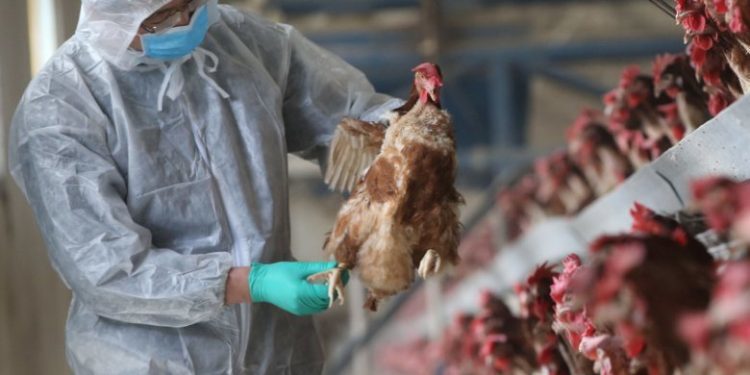The epidemic of the avian virus known as bird flu has impacted 24 farms in four regions.
This is according to statistics from Ghana’s Veterinary Services Directorate.
Greater Accra, Central, Volta, and Ashanti are the regions impacted.
Greater Accra leads the way with 18 farms, while the Volta Region has one outbreak.
A total of 41,451 birds have been afflicted, resulting in the natural death of 18,814 of them, while 22,637 have been killed as part of disease control efforts.
Dr. Benjamin Kissi Sasu, Risk Communication Officer of the Veterinary Services Directorate, described the incidence of infection.
“As of August 5, 2021, we have 24 farms in four areas impacted. Greater Accra has the most (18), followed by Central (3), Volta (1), and Ashanti (2). We now have 41,451 birds impacted. Greater Accra has 19,320 affected birds, of which 11,491 died naturally as a result of the illness and 7,829 were killed to prevent further spread.”
In the Central Region, 13, 657 birds were afflicted, with 4,100 birds dying naturally from the disease and 9,567 birds being killed for control reasons.
In the Volta Region, the disease has afflicted 2,482 birds, with 495 of them dying naturally. In one farm, however, 1,987 birds were killed in order to limit the illness.
In the Ashanti Region, 5,992 birds were afflicted, with 2,728 birds dying naturally from the disease and 3,264 birds killed for disease control.
The Veterinary Services Directorate has issued a red warning in 12 areas due to a potential epidemic of avian flu.
The agency said its officers in the five northern areas, the three Bono regions, the Western, Western North, Eastern, and Oti Regions, have been instructed to put in place measures to avoid an epidemic.
The Ashanti Region was the most recent region in Ghana to have an epidemic.
Three regions, Greater Accra, Central, and Volta, reported instances on different farms two weeks ago.
Following the current outbreak, the Ministry of Food and Agriculture issued a complete ban on the importation of chickens and poultry products from neighboring countries where the disease’s presence has been verified.
A ban on the movement of poultry and poultry products within and from affected regions and districts to other parts of the country, as well as strict inspection and issuance of permits to cover the movement of all poultry and poultry products from unaffected parts of the country, are being implemented.
In addition, the Ministry said that it has increased public awareness and sensitization via Regional Coordinating Councils and District Assemblies, particularly in impacted regions.
Read Also: Universities’ Senior Staff to meet today to discuss NLC’s directive to call off strike



























